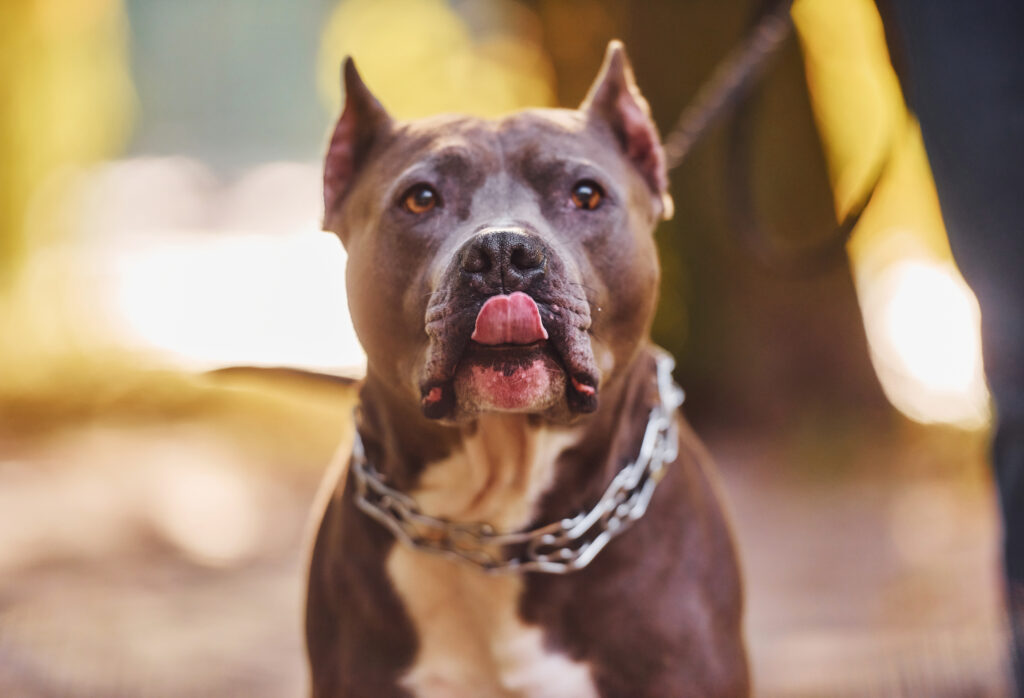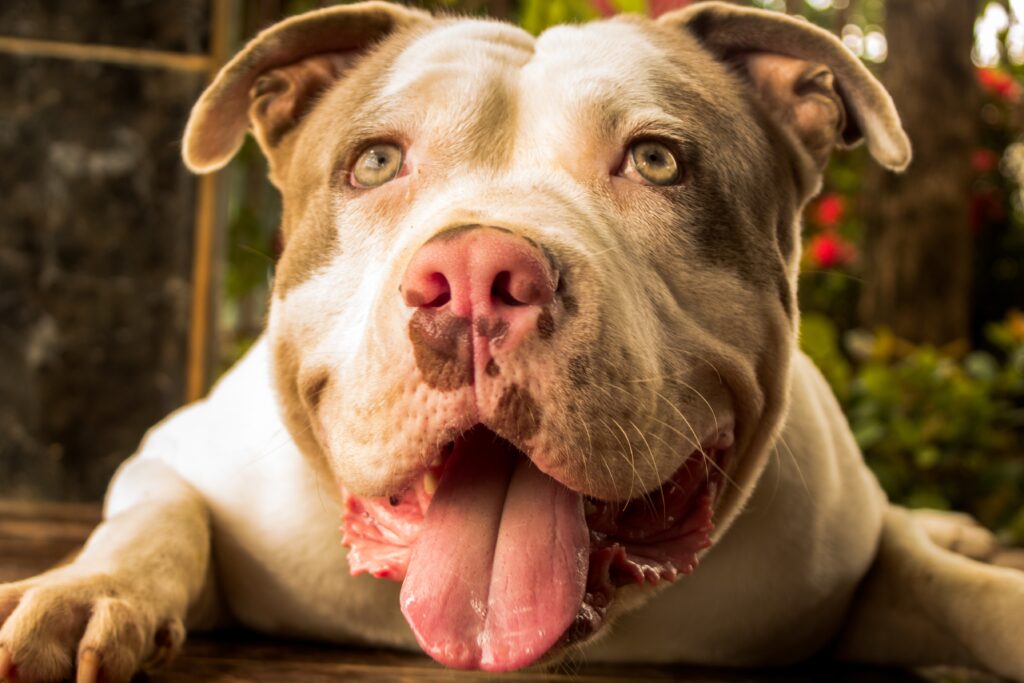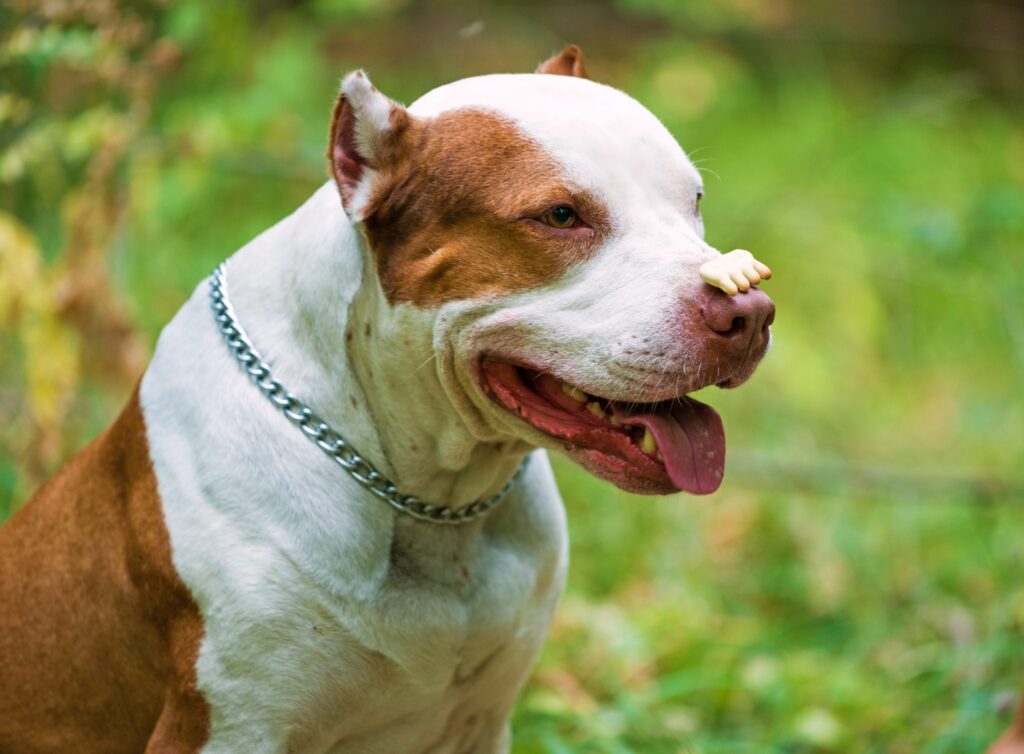Pit Bulls have long been the victims of unfair stereotypes and misconceptions. These incredible dogs are often misunderstood and stigmatized due to their appearance and reputation. In this blog post, we will explore the various stereotypes surrounding Pit Bulls, debunking myths and shedding light on the true nature of these loyal and loving companions.
Stereotypes Surrounding Pit Bulls

Dogs are often perceived as friendly creatures, but there are certain types of dogs that are often unfairly judged. Pit bulls also known as the American Pit Bull Terrier, is an example of a breed that faces unfair judgement.
Pit bulls fall into the bully breed category. Originating in Greece, bully dogs were initially bred to protect land and livestock. Dogs have long provided humans with valuable services and companionship. Bully breeds are characterized by their short muzzles and muscular frames. Other popular bully dog breeds include:
- Staffordshire Bull Terrier
- American Staffordshire Terrier
- Boxer
- English Bulldog
- American Bulldog
So what is it exactly that make pit bulls seem more intimidating than other dog breeds? And where did the stereotypes surrounding pit bulls come from? Lets take a deeper look at the misconceptions the breed faces.
They Are Bad With Kids
When it comes to stereotypes, one of the main issues is overgeneralization. It is simply untrue to say that all pit bulls are inherently bad with kids. In reality, pit bulls have the potential to be wonderful family pets. Their behavior ultimately depends on their individual personality, early socialization, and training.
Just like with any dog breed or animal, some individuals may be better suited for interaction with children than others. It is important for all dogs to be socialized with people from a young age, as this provides them with the best opportunity to become friendly and well-adjusted adults. Additionally, it is crucial for all family members to understand how to respectfully interact with a dog.
They Have Locking Jaws
One of the most persistent stereotypes surrounding Pit Bulls is the belief that they have locking jaws. This misconception has led to the false assumption that Pit Bulls have an innate ability to lock their jaws in place, making them more dangerous than other dog breeds. However, this is simply not true. Pit Bulls have the same anatomical structure as any other dog, and their jaws do not possess any special locking mechanism. Like all dogs, Pit Bulls have strong jaws, but their strength is not unique or exceptional compared to other breeds. It is important to debunk this myth and recognize that Pit Bulls should not be unfairly stigmatized based on false beliefs about their jaws.
Pit Bulls Are Mean to Strangers
Pit Bulls are often unfairly labeled as mean and aggressive towards strangers. However, this stereotype is not accurate. Like any dog breed, the behavior of a Pit Bull towards strangers depends on their individual temperament, socialization, and training. With proper socialization and training, Pit Bulls can be friendly and well-behaved around both familiar and unfamiliar people.
They Are Bred to Fight
The misconception that pit bulls were bred to fight has contributed to the negative perception of these dogs, unfairly tainting their reputation. While it is true that pit bulls were historically involved in dog fighting due to their strength and agility, it is crucial to debunk this myth and understand that not all Pit Bulls are bred for fighting.
Dog fighting is a cruel and illegal activity that has no place in a compassionate society. Responsible breeders and advocates for pit bulls prioritize their well-being, temperament, and suitability as family pets. They actively work to distance the breed from its dark past and promote a positive image of pit bulls in the public eye.
Just like any other breed, pit bulls can be loving, loyal, and gentle when provided with proper care, socialization, and training. They thrive in environments where they are treated with kindness and respect. It is unfair to label them solely based on their historical association with dog fighting, as many Pit Bulls today are cherished family members and therapy dogs, proving that they can be wonderful companions when given the opportunity.
They Are Disloyal
Another one of the many stereotypes surrounding pit bulls is the belief that they are disloyal. However, this stereotype is far from the truth. Pit Bulls are known for their loyalty and devotion to their families. They form strong bonds with their owners and are often eager to please. Like any other breed, a Pit Bull’s loyalty is influenced by factors such as socialization, training, and individual temperament. When given love, care, and proper training, pit bulls can be incredibly loyal and dedicated companions.
Pit Bulls Are Aggressive with Other Dogs
Many negative stereotypes surrounding pit bulls stem from their involvement in dogfighting. While humans have trained these dogs to fight, it does not mean that all pit bulls are inherently violent. Pit bulls do not exhibit aggression towards other dogs without reason, despite some misleading messages.
Once again, it is crucial to emphasize the significance of socialization from an early age, particularly during puppyhood. Dogs are social animals, and they thrive when exposed to other puppies during their early development. Being surrounded by their littermates not only provides comfort in the moment but also has long-term benefits.
Puppyhood plays a pivotal role in a dog’s life, as it often sets the foundation for their future behavior. A pit bull that has positive experiences and associations with other dogs during this critical period is more likely to maintain a friendly disposition towards them. When properly socialized and trained, pit bulls should have no issues interacting with other dogs.
It’s Not Safe to Adopt a Pit Bull
When considering adopting a pit bull or any other type of dog, it’s important to remember that the safety aspect is not specific to pit bulls alone. Before bringing a new pet into your home, take into account their characteristics and how they would fit into your lifestyle. Consider whether you have enough space for a larger dog, including adequate yard space or access to nearby parks for them to exercise and play.
You Should Only Adopt a Pit Bull Puppy
It is a common misconception that the only time to adopt a Pit Bull is when they are puppies. This belief stems from the notion that adult Pit Bulls may have behavioral issues or be less adaptable to new environments. However, this is far from the truth. Many adult pit bulls are loving and well-adjusted companions who are in need of a forever home. In fact, adopting an adult pit bull can have its advantages. Their personalities are already developed, allowing you to get a better sense of their temperament and compatibility with your lifestyle. Additionally, adult pit bulls are often already trained or have basic obedience skills, making the transition into their new home smoother. By considering adult pit bulls for adoption, you have the opportunity to provide a second chance to a deserving dog and experience the joy of welcoming a grateful and loyal companion into your life.
All Pit Bulls Are the Same
Another one of the many stereotypes surrounding pit bulls is that they are all the same. This misconception fails to acknowledge the individuality and unique personalities of pit bulls. Just like any other breed, pit bulls have their own distinct traits, behaviors, and temperaments. It is important to remember that generalizing an entire breed based on the actions or characteristics of a few individuals is unfair and perpetuates stereotypes. Each pit bull should be evaluated and treated as an individual, rather than assuming they are all alike based on preconceived notions.
Stereotypes Surrounding Pit Bulls & BSL

The stereotypes surrounding pit bulls have had a significant impact on the implementation of Breed Specific Legislation (BSL). BSL refers to laws and regulations that target specific dog breeds, including pit bulls, based on the assumption that they are inherently dangerous or aggressive. These laws often impose restrictions or even bans on owning or breeding pit bulls, leading to discrimination against responsible owners and well-behaved dogs.
The stereotypes surrounding pit bulls, such as their perceived aggression and dangerous nature, have fueled public fear and misconceptions. These misconceptions have, in turn, influenced lawmakers and local governments to enact BSL as a supposed solution to reduce dog-related incidents. However, research and studies have consistently shown that breed-specific laws are ineffective in improving public safety.
BSL fails to consider important factors such as individual temperament, socialization, and responsible ownership. It unfairly targets an entire breed based on stereotypes rather than focusing on responsible dog ownership practices, such as proper training, socialization, and leash laws.
Instead of addressing the root causes of dog-related incidents, such as irresponsible ownership and lack of education, BSL perpetuates discrimination against pit bulls and their owners. This legislation not only leads to the unnecessary euthanasia of thousands of innocent dogs but also denies responsible owners the opportunity to provide loving homes to these misunderstood and misrepresented breeds.
To break the cycle of stereotypes and discrimination, it is crucial to promote responsible ownership practices, educate the public about pit bulls and other dog breeds, and advocate for non-discriminatory laws that focus on the behavior and actions of individual dogs, rather than their breed. Only by challenging and debunking these stereotypes surrounding pit bulls can we create a more compassionate and inclusive society for both humans and animals.
Breaking the Stereotypes Surrounding Pit Bulls

It is crucial to break the stereotypes surrounding pit bulls and promote a more compassionate and inclusive society for these misunderstood breeds. One way to support this cause is by donating to Wounded Paw Project as we work to fight against breed specific legislation. Wounded Paw Project is dedicated to advocating for responsible ownership practices, educating the public about pit bulls and other dog breeds, and fighting against discriminatory laws that target specific breeds. By donating to the Wounded Paw Project and supporting our BSL initiative, you can help challenge the stereotypes surrounding pit bulls and work towards a society that judges dogs based on their individual behavior and temperament, rather than their breed. Your contribution can make a difference in providing a brighter future for pit bulls and ensuring that they are given the opportunity to be understood and loved.
